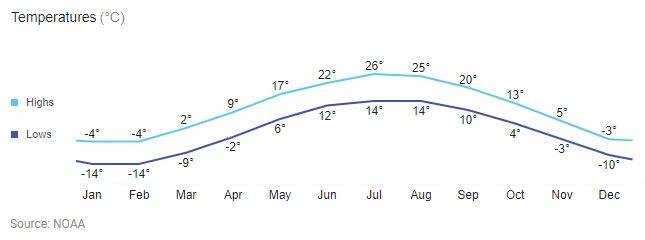

Course code: #DSB
These items are optional and you can choose them as you wish after applying for the course.
| Term start& deadline | Deadline | ||
|---|---|---|---|
| Fall-September 31-March-2024 | 2024-03-31 |
|
As students proceed through the Biological Science program, they will obtain a background in cell biology, genetics and molecular biology, physiology, biochemistry and developmental biology.
Senior level courses such as Bioethics, Neuroscience, Functional Genomics and Proteomics, along with access to modern laboratories, computational tools, sophisticated equipment and state-of-the-art facilities will enable advanced research work and skills training in industry best practice and in research.
Students can study through the Biological Science major, or choose to specialize in either Life Sciences, Environmental Biology, Environmental Toxicology or Applied Biotechnology.
Biotechnology is a rapidly growing area with many applications in health, agriculture and industry. Students gain a strong understanding of cell and molecular biology, microbiology, immunology, biochemistry and physiology. Students in this specialization also benefit from enhanced laboratory experience.
The Environmental Biology specialization prepares students for leadership roles in the environmental sector.
The specialization combines disciplinary study in the natural sciences in the first two years of the program, followed by focused study in the last two years on the diversity of life from genomes to ecosystems in natural and human-impacted environments.
Environmental toxicology is an interdisciplinary applied field involving health, agriculture, urban development and industry. It combines a strong base in biology and chemistry, with a focus on physiology, biochemistry, environmental science and environmental chemistry.
This specialization consists of an integrated and focused concentration on biology and chemistry, with additional courses in neuroscience and human anatomy.
You will gain a detailed understanding of the structure and functioning of the human body, how the brain and nervous systems work, and what happened when the brain degenerates and becomes damaged or disorganized.
The Marine Biology specialization focuses on marine ecosystems and organisms. Students will have experiential learning opportunities in the marine environment via a semester abroad at the Bermuda, at the Bermuda Institute of Ocean Sciences (BIOS).
$35,795
| Cost of living | 1 person | $7,800 |
| Accommodation | 1 bed room | $6,600 |
| Tuition | 1 person | $29,195 |
Duolingo English Test (DET): Minimum score of 110 (Education and Nursing programs require a total score of 120).
EAP:
Pre-EAP Program: Students who need more preparation before entering the English for Academic Purposes (EAP) program will be admitted to the Pre-EAP Program for a minimum of eight weeks.
Upon successful completion of pre-EAP, students will enter Level 1 of EAP. The Pre-EAP program focuses on building and improving basic English language skills.
| Level | IELTS (academic) entry requirement | TOEFL entry requirement | Description | Outcomes |
| EAP 6000 | 6.5 | 79-93 | Post-English for Academic Purposes | Direct entry to select Ontario Tech and Durham College programs (including Education and Nursing programs). |
| EAP 5000 | 6.0 (no band score less than 5.5) | 60-78 | Higher Advanced English for Academic Purposes | Direct entry to most Ontario Tech undergraduate and graduate programs and Durham College graduate certificate programs. |
| EAP 4000 | 5.5 (no band score less than 5.0) | 46-59 | Advanced English for Academic Purposes | Direct entry to most of Durham College diploma programs. |
| EAP 3000 | 5.0 (no band score less than 4.5) | 40-45 | Intermediate English for Academic Purposes | |
| EAP 2000 | 5.0 (band scores less than 4.5) | 35-39 | Developing English for Academic Purposes | |
| EAP 1000 | 4.5 (no band score less than 4.0) | 32-34 | Introduction to English for Academic Purposes | |
| Pre-EAP | 4.0 | <32 | Pre-English for Academic Purposes |

Related courses in univly